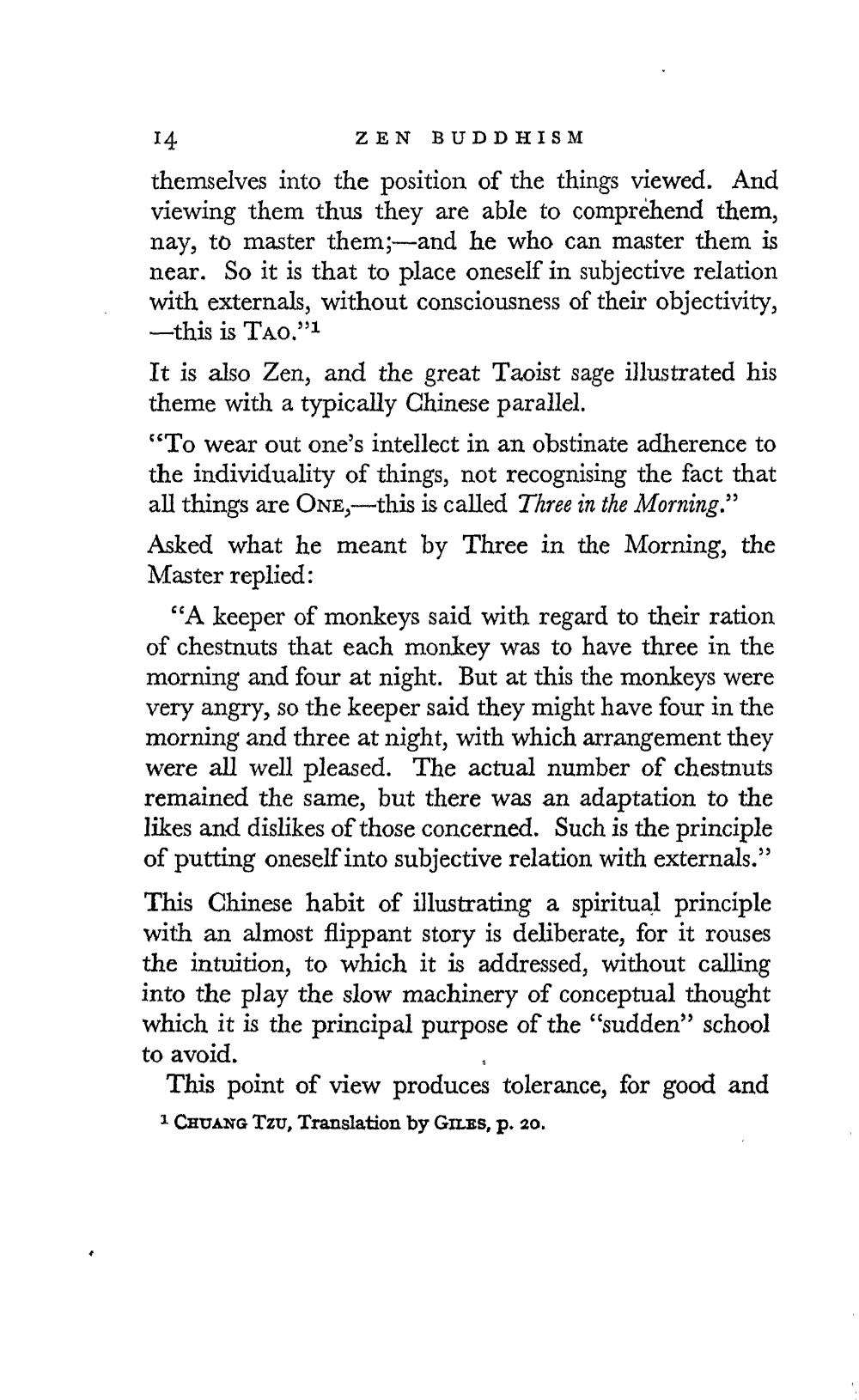________________
ZEN BUDDHISM themselves into the position of the things viewed. And viewing them thus they are able to comprehend them, nay, to master them;—and he who can master them is near. So it is that to place oneself in subjective relation with externals, without consciousness of their objectivity, —this is Tao."1 It is also Zen, and the great Taoist sage illustrated his theme with a typically Chinese parallel. "To wear out one's intellect in an obstinate adherence to the individuality of things, not recognising the fact that all things are ONE,--this is called Three in the Morning." Asked what he meant by Three in the Morning, the Master replied:
"A keeper of monkeys said with regard to their ration of chestnuts that each monkey was to have three in the morning and four at night. But at this the monkeys were very angry, so the keeper said they might have four in the morning and three at night, with which arrangement they were all well pleased. The actual number of chestnuts remained the same, but there was an adaptation to the likes and dislikes of those concerned. Such is the principle of putting oneself into subjective relation with externals."
This Chinese habit of illustrating a spiritual principle with an almost flippant story is deliberate, for it rouses the intuition, to which it is addressed, without calling into the play the slow machinery of conceptual thought which it is the principal purpose of the "sudden" school to avoid.
This point of view produces tolerance, for good and 1 CHUANG Tzu, Translation by GILES, P. 20.




